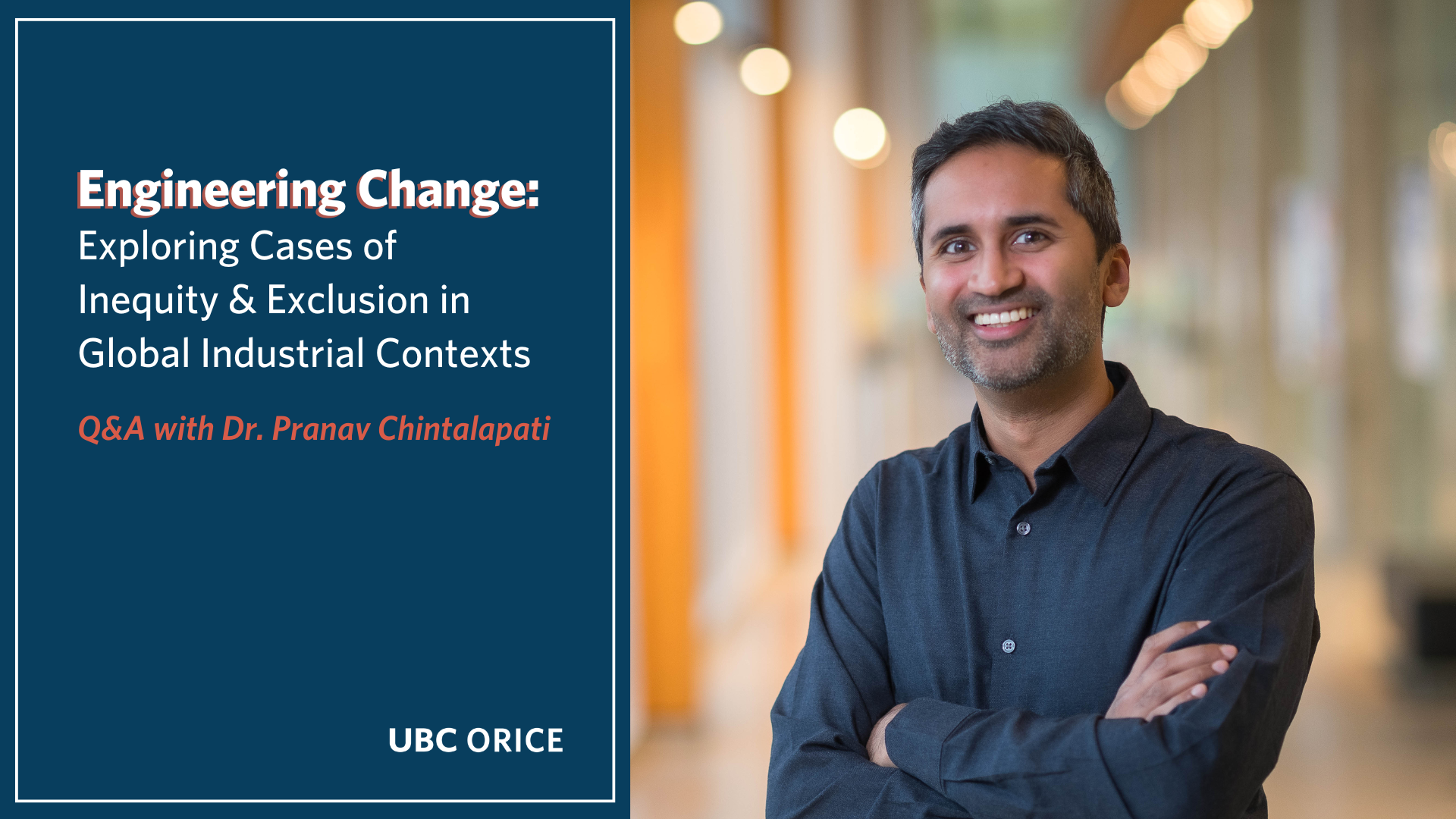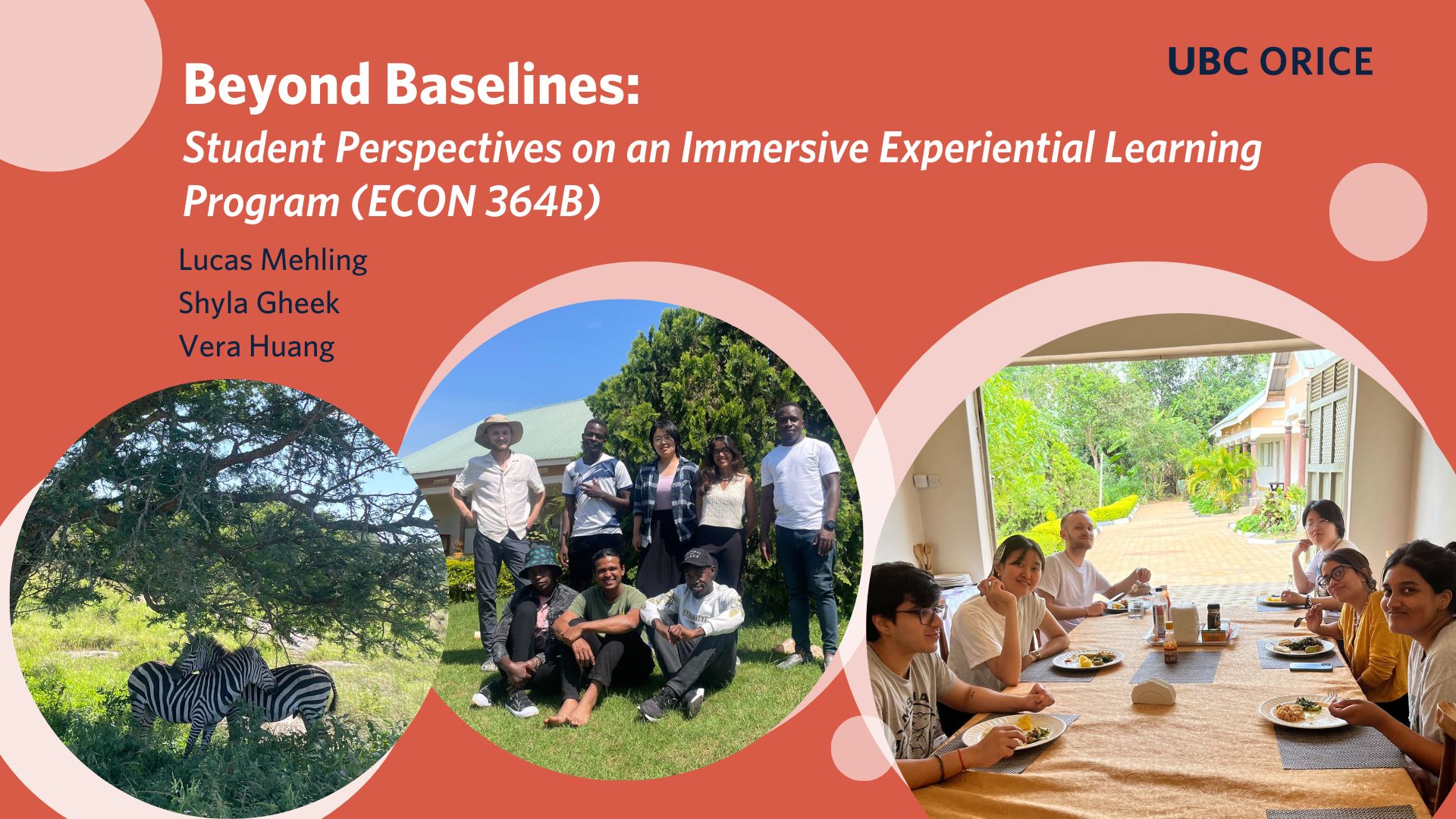

Back in 2018, AFRIpads – a social enterprise making affordable menstrual products for women and girls – was preparing to open their new factory in the rural area of Kitengesa, Uganda, having made an intentional decision to build in this area to contribute to rural economic development. Before opening, AFRIpads wanted to understand the socioeconomic picture for their surrounding community – what materials were the houses built out of? What kinds of access was there to water and electricity? Could families afford school fees and were children able to access school? What did employment look like? To understand these questions, AFRIpads engaged with ORICE as a long-standing partner and a group of students was sent to conduct a baseline survey and write a report meant to generally situate AFRIpads of where the community was in terms of economic status or wealth before their factory opened.
Fast forward to 2023 – the factory has been open for five years and while AFRIpads has become a well-established company, Uganda has experienced some of the world’s longest and strictest COVID-19 restrictions and lockdowns. In response to this scenario, another group of students was engaged through ORICE and AFRIpads’ partnership to investigate and produce a five-year follow-up survey and report aimed at capturing what had happened economically in the AFRIpads factory surrounding area since its launch. Had things changed in the community in the last five years from an economic or wealth standpoint? How so? What role did COVID-19 play in the community’s economic standing, if any?
The second cohort, similar to the first group of students, also worked through ORICE’s International Immersive Placement Program as part of the ECON 364B: Economic Sustainable Development course. Such academic offerings allow students to link their classroom concepts to tangible practice with local community organizations through tailored programming based on community-led projects, student participation, and ethical collaboration. Through these enduring partnerships, ORICE has been able to secure meaningful and reciprocal connections with institutions worldwide to facilitate enriching international experiential learning opportunities in various areas.
For an in-depth exploration of students’ experiences in such programs, we turn to the firsthand reflections of Xiaoyi (Vera) Huang, Shyla Gheek, and Lucas Mehling – three of the AFRIpads group students from Summer 2023. These reflections provide unique insights into the intricacies of their follow-up project, offering a compelling narrative that details their reflections on pre-departure, teamwork, research, and academic and professional impacts.
Q: What were your reflections and expectations before going to Uganda? Did you feel like being the follow-up group to a previous cohort working on this project influenced your group’s interactions with the community partner?
VH: Before going to Uganda, the Pre-Departure Learning Sessions organized by ORICE prepared us for the process we were committing to. We had certain expectations about our project and the environment before our placement. We specifically questioned the ethical and theoretical sides of conducting [this] project. The conversations with our group mates and ORICE about these topics helped us during the challenges we faced during the placement. Since ORICE prepared us well for the program, we built a relationship with our community partner that allowed us to transition well into the role despite not having talked with the previous cohort about their experiences. Indeed, we worked on the same project, but our commitments differed to some degree.
Q: What are some of your reflections on being the second cohort to come into an existing project?
LM: We spent a lot of time thinking about the motivation behind some of [the previous group’s] decisions because the survey they did was a big part of our project. Despite being restricted in designing the survey, we could decide on all aspects of the analysis and parts we created after the data collection. I appreciated having the ability to make our own interpretations. I think a lot of groups would have loved to conduct a follow-up study and have something to compare their findings to as well.
VH: I really appreciate the work done by the previous cohort because we recognized how hard working on this project was. At the same time, we had to adjust some requirements for the research process as five years had passed since the previous data collection. We were well-prepared to tackle it and had really strong teammates. Therefore, we succeeded in making minor changes in the methodology, survey collection, and data interpretation. I am grateful for working with my teammates because we advanced the study based on the findings of the previous group, which had started from zero.
SG: It was helpful to have a study to follow up on because we had a sense of direction and a path we should take. The minute we reached Uganda, our group just dived right into work: we had a clear sense of what we would do and a clear timeline to follow. At the same time, those groups who had to start a novel project had the freedom to expand based on their preferences. However, I observed how frequently their research direction was changing and how different the results of their projects were compared to the first ideas. That is why I found working on the follow-up study very helpful. AFRIpads knew what we were up to, ORICE was very knowledgeable about the work that had been done beforehand, and even our host family understood our mission well.
Q: What were some of the challenges and successes of working on this project and what did it mean for your personal, academic and/or professional life?
“I was excited to be done with my academic life and dive into the real world. However, this learning opportunity motivated me to research and potentially go to grad school.”
LM: Working on this project shaped my understanding of academia as I realized the nuances of data collection and analysis of empirical ideas as facts. I learned what it means to research in the global development context and experienced a lot of classroom concepts firsthand, which gave me a deeper understanding of my degree. Having participated in their project, I trust it’s making a real difference in people’s lives. And I am very happy to see published results getting some recognition.
SG: Participating in the program was my last stretch before graduating from UBC. I was excited to be done with my academic life and dive into the real world. However, this learning opportunity motivated me to research and potentially go to grad school. I was able to explore what I could do with research, even in a completely new environment with lots of deadlines to meet in a very packed schedule. It felt challenging but also extremely exciting, which made me want to study more and go into a research field in the future.
VH: I had already been devoted to the area of the study we conducted in Uganda while taking a course on Gender and Sex in Economics before the placement. This program was an opportunity for us, as students interested in economics, to bring our classroom knowledge and apply it in real life. It was the most exciting part! It was also an excellent professional experience because my goal is to develop a career in non-profit and community engagement. So, participating in a two-month program, which already was hard, and seeing the community partners working in this field for over a decade gives a broader perspective of how the system is operating and how challenging it can be. I developed a more precise understanding of how to plan my future career.
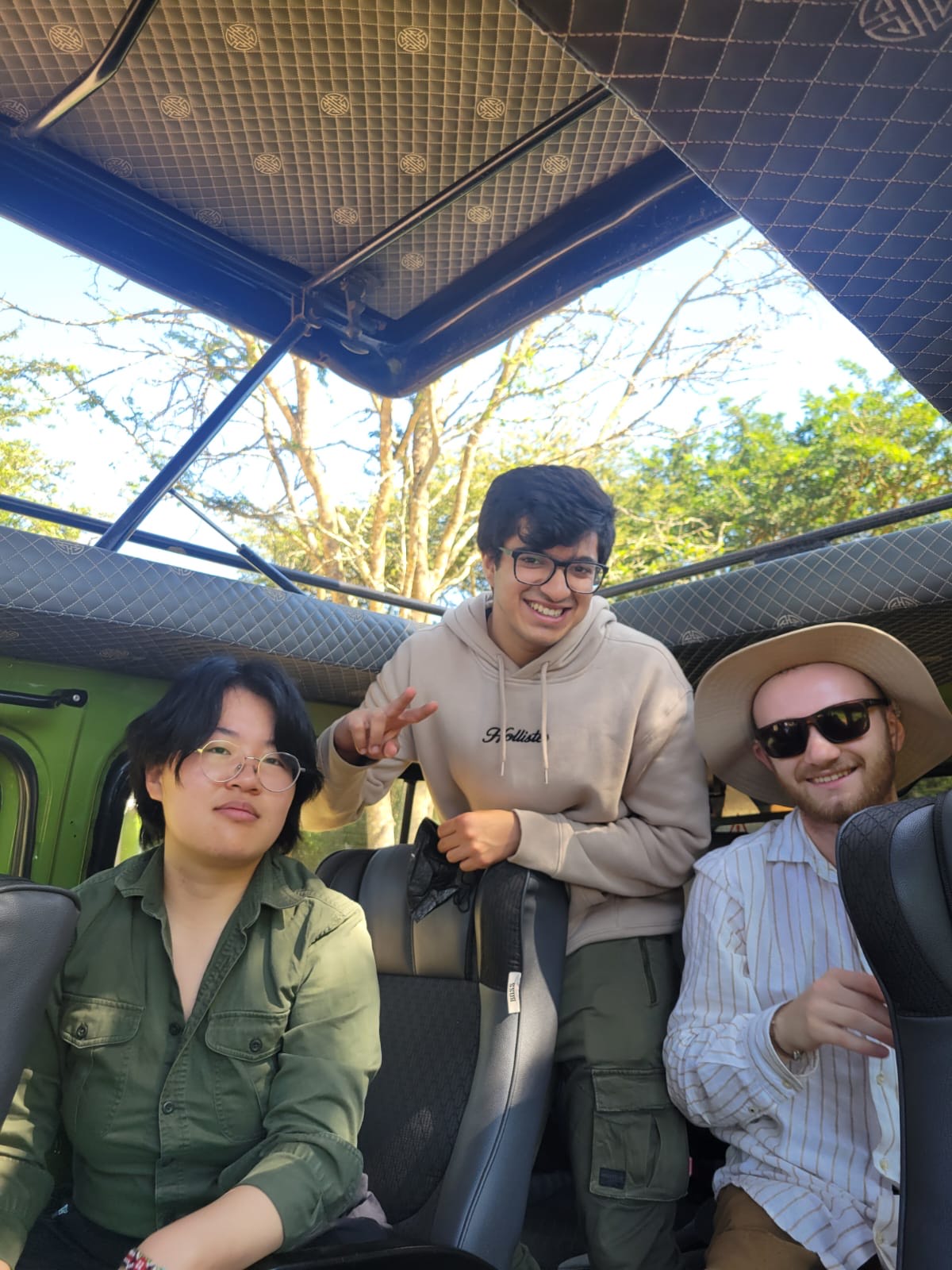
L-R: Xiaoyi, Nippun, Lucas
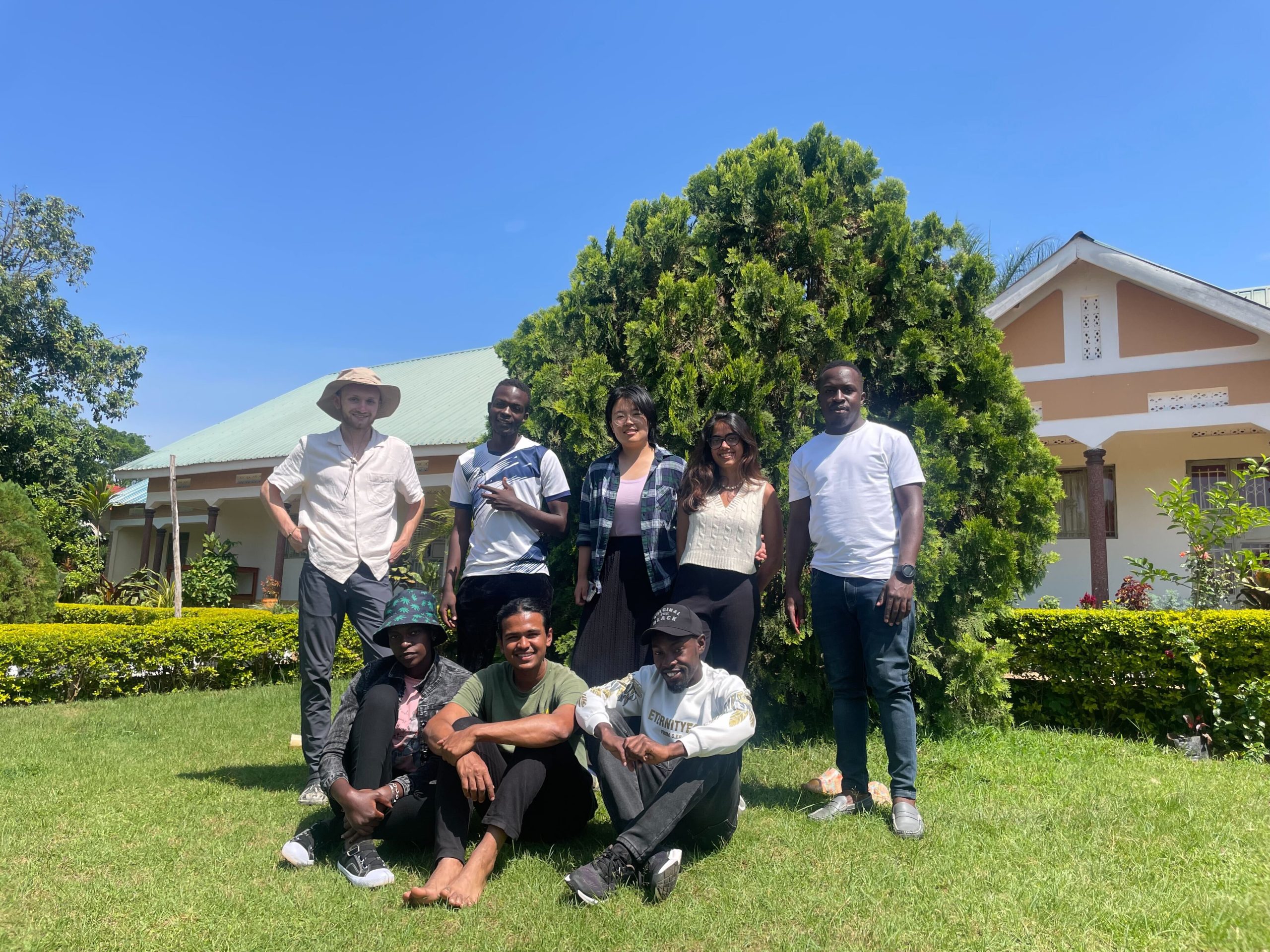
Top L-R: Lucas, Arthur, Xiaoyi, Shyla, Henry; Bottom L-R: Sheeba, Kabir, Mark
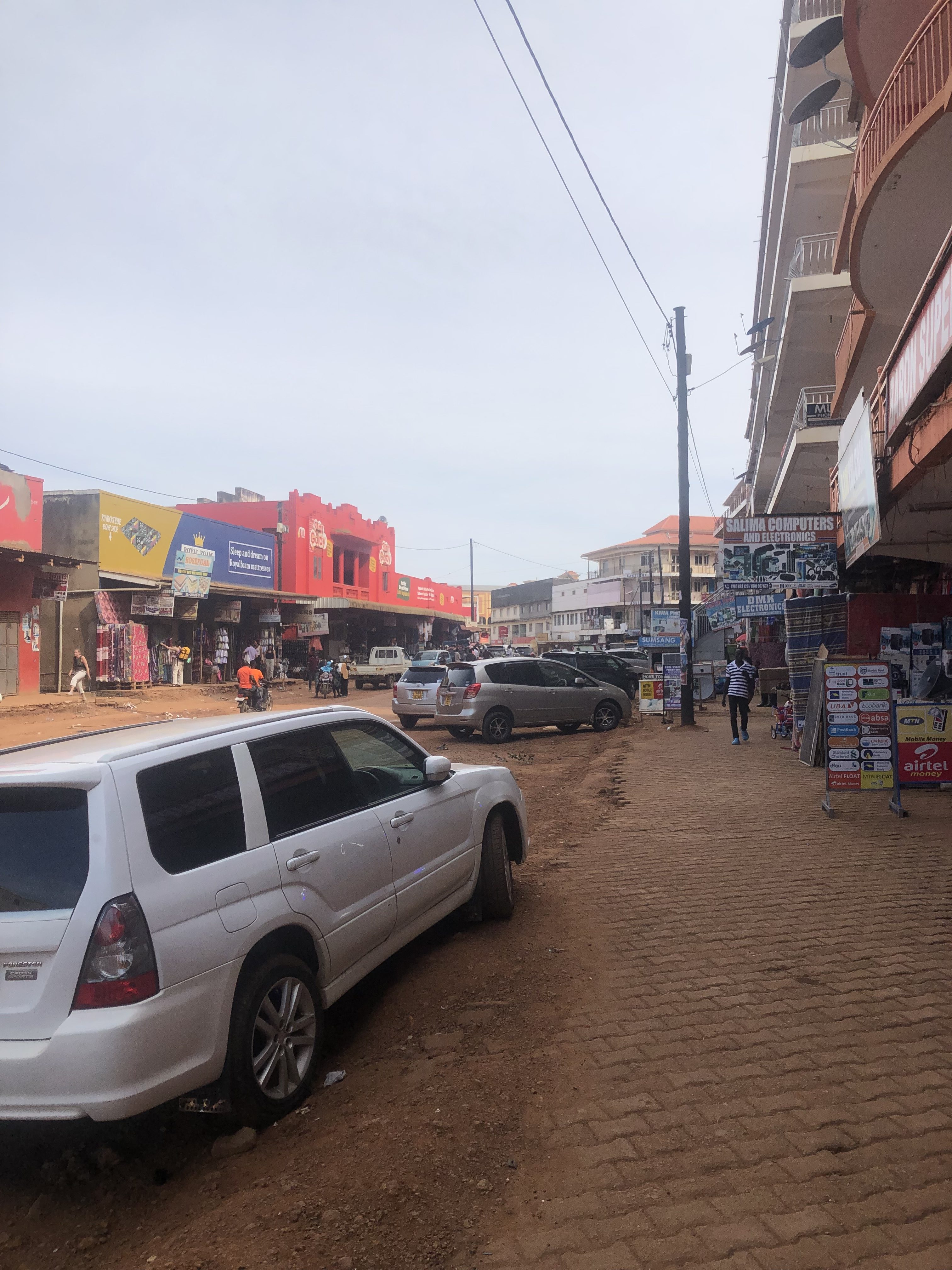
Masaka town
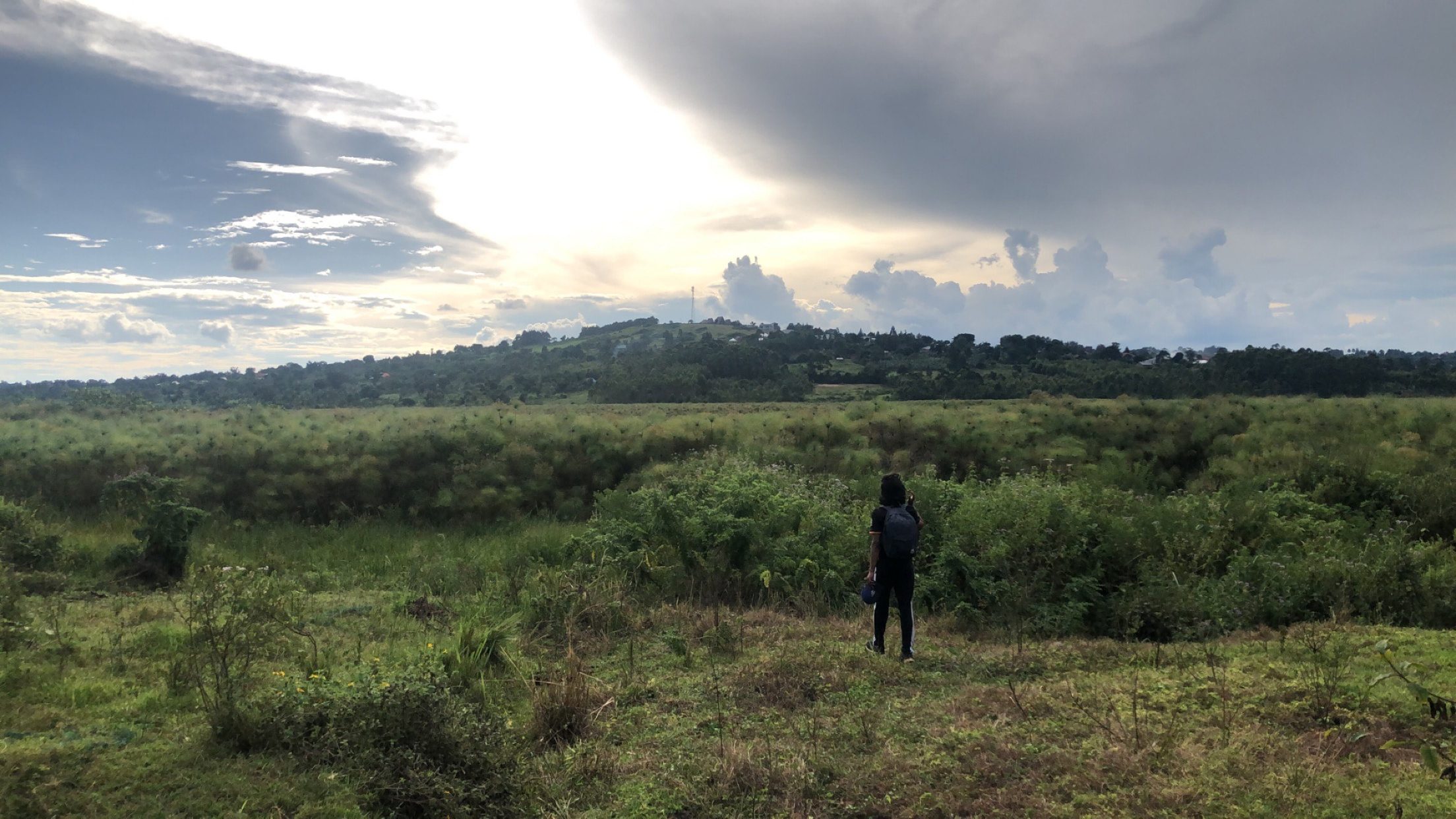
Fieldwork
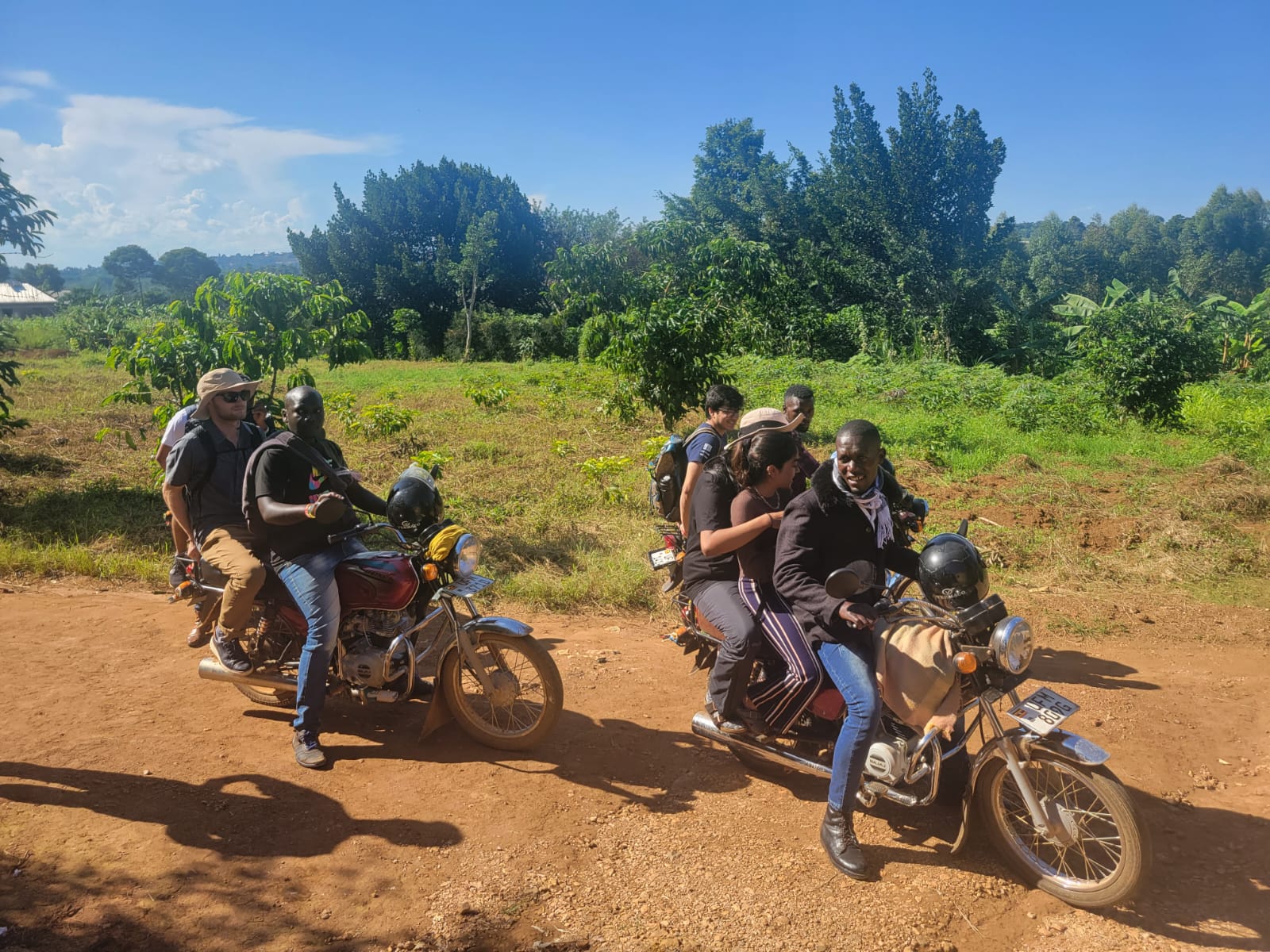
Students on their way to work.
Q: How did working with a team impact your experience of international immersion programming? How did working with AFRIpads shape the work you did as a team?
LM: The value of having other people going through the same experience as me was crucial. There were challenges, but we could get through them together, and it would be impossible for me to do the work that we did by myself. Getting different perspectives, and seeing people’s skill sets come together for the exact cause is very important. AFRIpads were our support system in structuring our surveying and quantitative analysis. Through collaborating with our organization, we learned some insights about conducting research in a community and were able to perform our study successfully.
SG: There definitely were some challenges, as is always the case when working in a newly formed team. We got selected for the program and were suddenly introduced to 3 people we were supposed to work with for a total of 10 months, from pre-departures in January until the ORICE Symposium in October. During the placement, we wanted to modify a few things in the research structure, so it was hard to agree on something as different things worked for everyone. Looking back, I realize we were put together as a team based on our skill sets, which led to our successful project completion. As for AFRIpads, they supported us during the research, gave us a tour of the main office, and allowed us to work in their factory. They believed in our potential as the second cohort, which reflected how easy it was to build a relationship with them.
Q: What you would say to a student who is considering participating in one of ORICE’s experiential learning programs?
“Do your preparation, but keep an open mind. Try to be organized and come up with a plan, but be ready to adapt it. Go with passion and have fun. Do your best and try to learn. You got it. Don’t take the time there for granted.”
SG: Just give it time and everything will make sense. It seems challenging, but it’s worth it. Being comfortable in uncomfortable settings is one thing I learned from my time there. So, just remember that every program is created in a way that it is for a reason, and I think you are in for a treat if you can commit to this idea.
VH: Be more patient and sleep more. Try to be more focused in the Pre-Departure Learning Sessions because the information from them can help you a lot during the actual placement. This is also a great opportunity to learn more about your teammates, ORICE in general, and how to communicate with everyone in our big family we formed within a few months before going to the country.
Interested in ORICE’s international immersion programs? Find out more about our international course programs here.
Follow us on social media @ubc_orice or subscribe to our newsletter to stay updated!
About the students
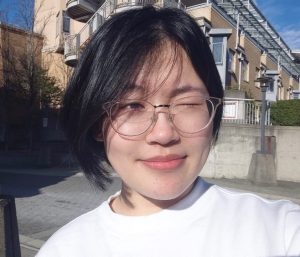

Xiaoyi (Vera) Huang
Vera completed her degree in the Faculty of Arts with a Psychology major and Economics minor in 2023.
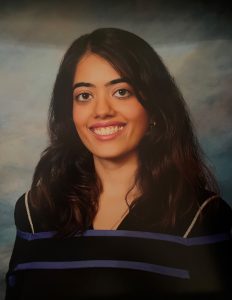

Shyla Gheek
Shyla graduated with a degree in Economics and International Relations in 2023.
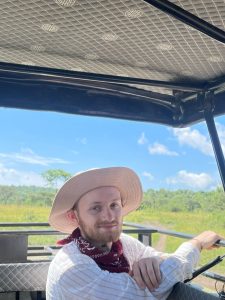

Lucas Mehling
Lucas finished his Bachelor in International Economics in 2023.
Fardin Kabir
Kabir also participated in this project but was not featured in this interview. He is currently pursuing an undergraduate degree in Economics and Philosophy at UBC.


